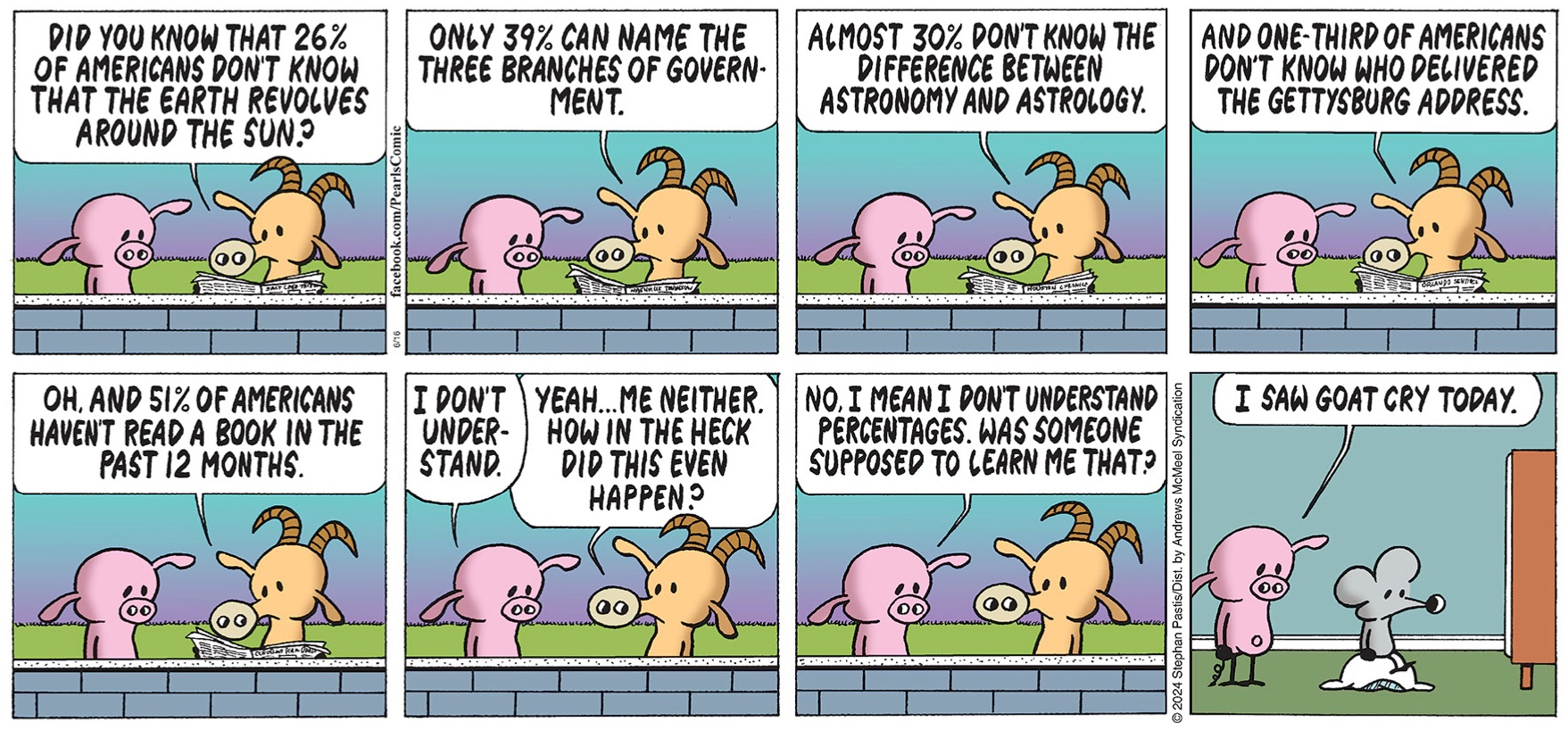this post was submitted on 24 Dec 2024
463 points (98.5% liked)
Comic Strips
13215 readers
2962 users here now
Comic Strips is a community for those who love comic stories.
The rules are simple:
- The post can be a single image, an image gallery, or a link to a specific comic hosted on another site (the author's website, for instance).
- The comic must be a complete story.
- If it is an external link, it must be to a specific story, not to the root of the site.
- You may post comics from others or your own.
- If you are posting a comic of your own, a maximum of one per week is allowed (I know, your comics are great, but this rule helps avoid spam).
- The comic can be in any language, but if it's not in English, OP must include an English translation in the post's 'body' field (note: you don't need to select a specific language when posting a comic).
- Politeness.
- Adult content is not allowed. This community aims to be fun for people of all ages.
Web of links
- [email protected]: "I use Arch btw"
- [email protected]: memes (you don't say!)
founded 2 years ago
MODERATORS
you are viewing a single comment's thread
view the rest of the comments
view the rest of the comments

It's ORBITS the sun.
Not "revolves around the sun".
They both orbit a common center of mass called a barycenter. I assume that's what the 26% said.
Funnily enough, the barycenter of the earth and sun is inside the sun iirc
If you want to make that argument, you have to account for all the other bodies in the solar system... Which I think then becomes a hard problem to predict the movements thereof in the long term?
In what context is there a difference? "Orbit" and "revolve around" are synonyms.
"Revolve" is a scientifically accurate word to use.
https://physics-network.org/what-is-difference-between-rotate-and-revolve/#What_is_a_revolution_in_physics